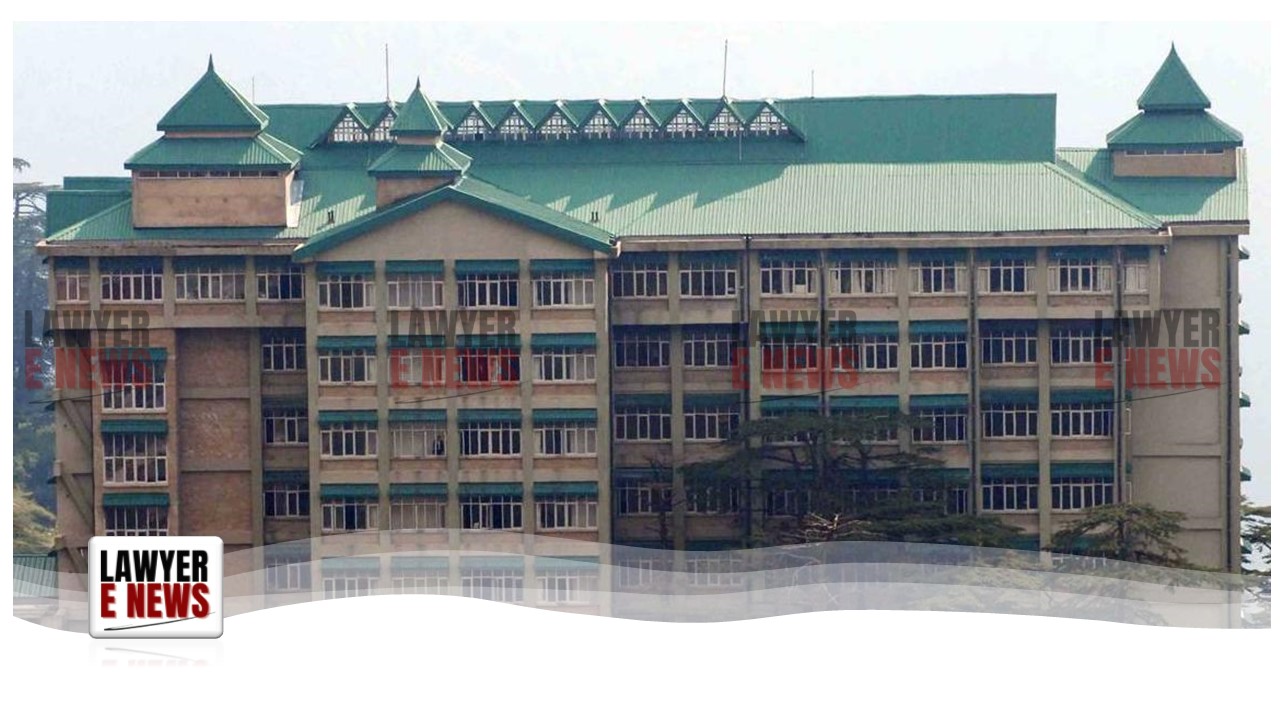-
by Admin
15 February 2026 5:35 AM



Himachal Pradesh High Court dismissed two criminal revision petitions challenging the summoning of petitioner Rulia Ram Walia as an additional accused under Section 319 of the Criminal Procedure Code (CrPC). The petitions were filed against the order of the Judicial Magistrate, First Class, Baijnath, which summoned the petitioner based on evidence pointing towards his involvement in a property forgery and conspiracy case. The court upheld the lower court's decision, stating that there was sufficient evidence to summon the petitioner.
Summoning Under Section 319 CrPC Based on Witness Testimonies
In the case at hand, the prosecution had presented a complaint alleging that the accused had forged signatures to fraudulently transfer property. Witnesses, including Kulfi Devi (PW-3) and Parmanand (PW-7), testified that they were misled into signing documents and that the petitioner, Rulia Ram Walia, was present during the transaction and had signed documents pretending to be another person.
Key Testimonies Supported Summoning Under Section 319 CrPC
Justice Rakesh Kainthla noted that Section 319 CrPC allows the court to summon additional accused during the trial if strong and cogent evidence is presented. In this case, the witness testimonies provided sufficient prima facie evidence suggesting that the petitioner was involved in the crime of forgery. The court held that the standard of evidence required to summon an additional accused under Section 319 CrPC had been met, as un-rebutted evidence could lead to a conviction.
Forgery and Criminal Conspiracy Allegations
The case stemmed from an allegation that the petitioner was involved in forging signatures to transfer property illegally. Witnesses claimed that the petitioner signed documents pretending to be Parmanand (PW-7), which led to the illegal transfer of land. Though the forensic report on the signature comparison was inconclusive, the court relied on the witness testimonies, which indicated the petitioner's involvement.
Challenge to Appellate Court's Remand Order Rejected
The petitioner argued that the Appellate Court had wrongfully remanded the case for reconsideration by the Trial Court. However, the High Court dismissed this contention, stating that the remand order was not challenged at the appropriate time and had therefore attained finality. The court emphasized that the Trial Court was merely following the Appellate Court's directive to reconsider the summoning application based on the evidence presented.
Justice Kainthla referred to several judgments, including the landmark case of Hardeep Singh vs. State of Punjab, (2014) 3 SCC 92, which outlines the criteria for invoking Section 319 CrPC. The judgment in Hardeep Singh specifies that the power to summon an additional accused under Section 319 must be exercised sparingly and only when strong evidence suggests the person’s involvement in the crime.
Court's Observations on the Standard of Evidence
The court reiterated that summoning an accused under Section 319 CrPC requires a higher standard of evidence than what is necessary for framing charges. The evidence must show more than a mere probability of complicity and should indicate that if the evidence remains un-rebutted, it would result in a conviction.
The Himachal Pradesh High Court dismissed the petitions filed by Sanjay Kumar and Rulia Ram Walia, upholding the lower court’s decision to summon the petitioner as an accused under Section 319 CrPC. The court found that the testimonies of key witnesses provided enough evidence to establish the petitioner’s prima facie involvement in the forgery case.
The court's decision emphasizes the careful exercise of judicial discretion when summoning additional accused under Section 319 CrPC. The judgment affirms that strong and cogent evidence must support such summoning, and when such evidence is present, as in this case, the court is justified in summoning the accused for trial.
Date of Decision: October 21, 2024
Sanjay Kumar & Ors. vs. State of Himachal Pradesh
